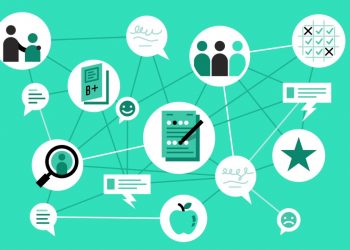Yes, mastering Python is worthwhile in 2022 since many of the most exciting areas in technology – like artificial intelligence and machine learning depend heavily on computer programmers who have Python proficiency.
Due to the popularity of ML libraries such as Pandas and Scikit-learn, Python is the preferred language used in many fields, including data analysis, data science, and machine learning. This is important as the demand for experts with ML expertise is constantly increasing, and jobs in ML are expected to reach $30 billion in 2024.
Due to the flexibility of Python and its numerous functions and applications, it is an excellent tool for multiple job roles. In reality, you must, at a minimum, learn the basics of Python if your work involves web, software products, data, or design.
Do I need to learn Python 2 or Python 3?
You must take a Python course in ]3, which is much more sought-after by employers and has an integrated typing system. While Python 2 uses an outdated syntax, it has several DevOps features.
The main benefits to Python 3 include syntax – the precise commands in Python 3 code make it easier to use and also a more accurate division of integers and the ability to display various languages and popular emojis by using Unicode and a library that is forwards compatible (though this could only impact the more advanced Python developers).
Python 2 is no longer supported, and security flaws cannot be fixed.
Do I Learn Python on my Own?
It is feasible to learn Python by yourself. While it could impact the length of time it takes to master Python, there are many free online classes, videos, tutorials, and other resources that can assist anyone in learning to code using Python.
One advantage to using Python has to do with the fact that the Python Developer community has become vast and supportive. Do not hesitate to seek assistance from master programmers online to answer anything from queries on Python basics to receiving feedback on your work or seeking career advice.
Do I have to be proficient in Math to learn Python?
It is not necessary to be a math expert to master Python. While it is helpful to have a school knowledge of maths, the reality is that you can learn Python without any mathematics skills.
A recent study found the importance of communication abilities. More critical than maths abilities in programming and hiring practices should reflect this.
How Long Do You Need to Spend Learning Python to Do Data Science?
The various estimates suggest that it could take anything from 3 to 12 months to master Python to be a data scientist. It could be longer than general Python learning because Data Scientists use Python differently as a programmer.
In the realm of data science, Python could be utilized to build models and clean, retrieve, and visualize the data. Python training applied to data science involves spending more time learning about specific libraries and modules such as Numpy or Pandas.
Do I Learn Python in Two Weeks?
It’s possible to master the fundamentals of Python within two weeks of intensive studying and to practice. Still, it’s likely to take a longer time to accumulate enough experience working on projects to become proficient.
It’s reasonable to assume that by the close of 2 weeks, you’d be able to comprehend Python basics (including type and variable variables as well as the primary operator’s strings, loops, formatting of strings functions, loops, and more). You would be able to master one or two libraries and begin creating Python projects.
Of course, there are many ways to master Python, and the speed you’ll be able to master will be largely dependent on your technique. However, most online Python classes will require more than two weeks to finish.
What Learning Python Can Do For You?
The numerous benefits of studying Python can include making it easier to master other programming languages, providing you a sought-after career opportunity as well as assisting you to communicate with multidisciplinary teams.
Here are a few additional benefits that you can do to master Python can offer you:
A wide range of applications
Python is used by many large companies, including Netflix, Facebook, Instagram, Google, Disney, Amazon, Spotify, and numerous others. Suppose it seems like Python is used in virtually any field. In that case, that’s because Python is an excellent tool for tasks that involve analytics, data mining AI and web-based development embedded systems, developing products and testing, and many more.
Keep pace with the others.
In almost every way, Python is tops among the languages growing fastest across the globe. According to the TIOBE Index, Python is the second most popular language after C in terms of growth and a decreasing gap.
Do you have the skills?
LinkedIn has ranked Python a fantastic second place among the most sought-after languages by employers. A growing number of job ads require Python programming expertise.










![Is Tokyo Ghoul on Netflix? [How to Watch Online]](https://avctv.com/wp-content/uploads/2022/08/AAAABct1DaUzhEt4JeJFeDrmaE_4CGAu39fBN6poMx10hAlWlMRjkkAw84hjmuujWTy2wFC7_Pjnujec-_PqT1GCnnMFMJ15S04baJn1b0WvvbG6hrSNb31_GS4--120x86.jpg)





